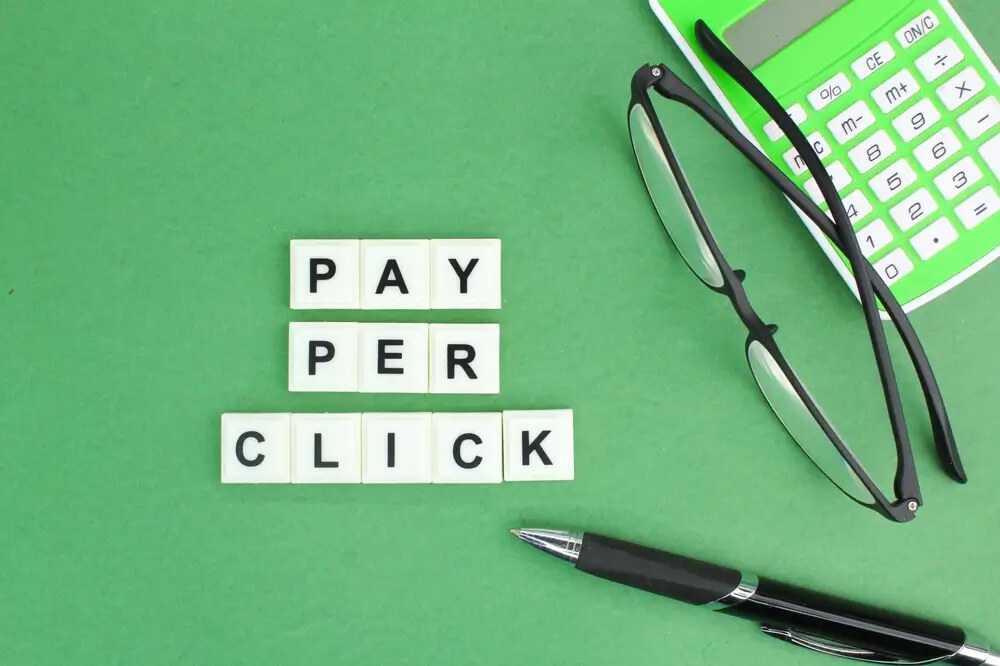Are you set to jump into the exciting world of digital marketing? Two major contenders are in the ring: Pay-Per-Click (PPC) advertising and Search Engine Optimization (SEO). Both are aiming for the same prize—enhancing your online visibility and attracting those crucial website visitors. But here’s the twist, each has its own distinct strategy for achieving this.
In this deep dive, we’re unpacking PPC and SEO, examining what drives each one, their advantages, and where they might have weaknesses. It’s all about striking that ideal balance where these strategies work in harmony, creating a digital marketing plan that’s both effective and smart. Curious to find out how these two can collaborate to elevate your online presence? Let’s dive in!
Understanding PPC and SEO
What is PPC?

PPC, or pay-per-click advertising, is your go-to strategy for getting noticed online when competition is stiff and attention spans are short. Imagine it as a digital auction where you bid on keywords relevant to your business. When you place your bid, you’re not just throwing money around; you’re competing to have your ad show up when people search for those specific terms. The catch? You only pay when someone actually clicks on your ad, making it a smart way to attract visitors without wasting your budget on ads that don’t get noticed.
Google Ads is the big player in this game, formerly known as Google AdWords. You know those search results that have a little “Ad” tag at the top? That’s where your hard-earned money can work for you! PPC allows you to target people actively searching for what you offer, so you’re reaching the right audience at the right time. But it’s not just about how much you’re willing to spend; your ad’s quality and relevance also matter. Mastering PPC means being savvy about your bids and creating eye-catching ads that don’t just get clicks but convert visitors into customers. With the right approach, you’ll have a high-converting machine that brings in results without breaking the bank!
What is SEO?

So, what’s the scoop on SEO? SEO, or Search Engine Optimization, is the art and science of fine-tuning your website to make it shine in online searches. It’s not just a quick fix; it’s a combination of various strategies working in harmony. The first step? Creating high-quality content that’s genuinely valuable to your audience. If people find your content engaging, they’re more likely to share it, link back to it, and spend time on your site—all good signals to search engines that you’re worth noticing.
But that’s just the tip of the iceberg. You also need to optimize your meta tags and descriptions, which act like your site’s calling card in search results. They need to be catchy enough to draw clicks while accurately reflecting what’s on your page. Next up, think about building relationships through backlinks. This is like getting endorsements from your network; the more reputable sites that link to you, the better your site looks in the eyes of search engines. And don’t forget about the user experience! Make sure your site runs smoothly and is easy to navigate, providing a seamless experience for visitors. When you pull all these elements together, you’re not just boosting your chances of standing out in the crowded online space; you’re also attracting more traffic and potential customers to your site.
The Benefits of PPC
PPC offers a slew of benefits that can make it a game-changer for marketers looking to boost their online presence:
Instant Visibility
PPC is the ultimate way to fast-track your website or business into the spotlight. As soon as your ads go live, they shoot straight to the top of search results, grabbing the attention of the exact audience you want to reach. It’s like having a VIP pass that puts your brand right where the action is. For example, if you’re launching a new online store for custom sneakers, a solid PPC campaign ensures that your ads pop up at the top when someone searches for “custom sneakers.” This means you’re bringing in shoppers who are ready to buy, giving you a significant edge over competitors who might still be working to build their organic traffic.
With PPC, you don’t have to wait around for people to find you; your ads are front and center as soon as you hit “launch.” This immediate visibility helps you attract more clicks and conversions, especially during crucial launch periods or promotions. So, if you want to make a splash and get noticed fast, PPC is the way to go!
Targeted Advertising
PPC is your secret weapon for getting your ads in front of the right crowd. Imagine it as a high-powered spotlight that shines directly on your ideal audience. With PPC, you can fine-tune your targeting to focus on specific groups based on a bunch of factors—keywords, geographic location, device preferences, demographics, and even interests. This kind of precision means your ads don’t just cast a wide net; they hit the sweet spot where it matters most.
By zeroing in on the people who are genuinely interested in what you’re offering, you boost your chances of making a real connection and driving those all-important conversions. Whether you’re targeting local customers or a niche market, PPC lets you tailor your approach to get the best results. So instead of hoping for the best with a generic ad, you can strategically reach out to those who are most likely to engage and make a purchase. It’s all about working smarter, not harder.
Measurable Results
PPC puts you firmly in the driver’s seat when it comes to tracking your ad performance in real time. You get a clear picture of how many people are clicking on your ads, how many are seeing them, and most importantly, how many are making purchases as a result. This means you can keep an eye on your return on investment (ROI) and know exactly what’s working and what’s not. It’s like having a personalized dashboard for your ad campaigns, loaded with all the details you need to make smart tweaks and get the best bang for your buck.
Tools like Google Analytics and Facebook Ads Manager are your best pals here, helping you keep tabs on those important metrics. They allow you to adjust your approach and maximize your results based on solid data. For example, if you’re running a campaign for a new service, these tools will show you which ads are driving the most conversions. Armed with this insight, you can fine-tune your strategy, invest more in what’s working, and ditch the rest. With PPC, you’re not just flying blind—you’re making informed decisions that can lead to better performance and higher sales!
The Advantages of SEO
While PPC offers immediate results, SEO provides long-term benefits that can significantly impact your online presence:
Organic Traffic
When it comes to driving visitors to your website, organic traffic stands out as a sustainable strategy that doesn’t require constant cash outlays like Pay-Per-Click (PPC) advertising. With Search Engine Optimization (SEO), you’re investing in a long-term approach to attract users without relying solely on paid ads. By optimizing your site with the right keywords and consistently delivering valuable content, you can draw in users who are actively searching for information related to your business.
This means that once your SEO efforts start to pay off, the traffic you generate can keep coming in without the ongoing costs associated with PPC. Unlike ads that disappear when you stop paying, quality SEO builds a solid foundation that can lead to consistent visibility in search results. So, if you focus on creating engaging content and optimizing your site effectively, you’ll not only attract more visitors but also cultivate a loyal audience who trusts your expertise and is genuinely interested in what you have to offer. It’s a win-win for boosting your online presence.
Credibility and Trust
When your website consistently appears at the top of search results, it instantly gains credibility in the eyes of users. People tend to trust websites in this prime position because they view them as the gold standard in their search for information. Achieving and maintaining that coveted top spot isn’t just luck; it demonstrates that you’re knowledgeable and reliable in your field. This visibility helps establish your authority in the industry, making you the go-to source for the products or services you offer.
As users repeatedly see your brand at the top of the search results, their trust in you continues to strengthen. They begin to associate your brand with quality and expertise, which can lead to higher conversion rates and customer loyalty. Building that trust takes time, but with a solid SEO strategy, you can create a lasting impression that positions your business as a leader. So, not only does good SEO help you attract traffic, but it also fosters a sense of reliability that can turn casual visitors into devoted customers.
Cost-Effectiveness

Investing time and resources into SEO might feel like a big commitment at first, but the long-term benefits are totally worth it. Once your website climbs the ranks and secures those top spots for key search terms, you’ll enjoy a steady stream of organic visitors—without paying for every click. It’s like setting up a perpetual motion machine for your online presence.
Unlike Pay-Per-Click (PPC) advertising, which requires constant funding to maintain visibility, effective SEO allows your site to stay relevant in search results for a long time. This means the traffic you gain can keep rolling in, leading to higher conversion rates and more sales—all while keeping your costs low. A solid SEO strategy is one of the most cost-effective ways to grow your online presence and attract visitors genuinely interested in what you offer.
Striking the Right Balance
Balancing PPC and SEO is crucial for a winning digital marketing game plan. Here’s the lowdown on how to nail that harmony:
Identify Your Goals
Before you jump into your PPC and SEO strategy, take a moment to figure out what you really want to achieve. Are you looking to boost your brand’s visibility, get more visitors to your site, or increase your sales? Clearly defining your goals is like setting your GPS—without it, you might end up wandering around. Knowing exactly what you want helps guide your strategy and keeps you on the right track.
For instance, if your aim is to build brand awareness, you might focus on high-traffic keywords and eye-catching ads that really stand out. But if you’re all about driving immediate sales, you’d want to prioritize tactics that encourage conversions and sweet offers. Getting these goals sorted from the start makes sure every move you make is in line with what you’re trying to accomplish, making your efforts more effective and spot-on.
Allocate Your Budget Wisely
When it comes to divvying up your marketing budget, keep your goals and target audience in mind. If you’re launching a new product and need quick traction, pump more money into pay-per-click (PPC) ads for that instant visibility and fast results. But if you’re aiming for steady, long-term growth, it’s smarter to invest more in search engine optimization (SEO) to build organic traffic and maintain your online presence over time. It’s all about choosing between playing the long game or going for those quick wins.
For instance, if you’re rolling out a new app, a boost in PPC can get you those instant sign-ups you’re after. At the same time, a solid SEO strategy will help your app rank better in search results, bringing in users long after that initial push. Balancing your budget this way ensures that you’re set up for both short-term success and lasting growth.
Coordinate Your Efforts
PPC and SEO shouldn’t be kept separate, they shine brightest when they team up. Think of them as two sides of the same coin, each boosting the other to achieve the best results. For instance, the data you gather from PPC campaigns can provide valuable insights into which keywords are performing well, helping you refine your SEO strategy to target those areas effectively.
On the flip side, good SEO practices can actually save you money on PPC campaigns by improving your quality score, making your ads more relevant and effective. When these strategies work in harmony, you get the most bang for your buck, maximizing your marketing efforts and driving better results overall. So, don’t let them operate in silos—coordinate your efforts for a winning combo.
Monitor and Adjust
Keep a close eye on how your PPC and SEO campaigns are performing, and don’t hesitate to make adjustments as needed. Dig into metrics like click-through rates, conversion rates, keyword rankings, and the flow of organic traffic. This way, you can spot areas that need improvement and fine-tune your strategies accordingly.
Regular monitoring helps you stay on top of what’s working and what’s not, allowing you to pivot when necessary. Whether it’s tweaking ad copy, adjusting bids, or shifting your SEO focus, staying proactive ensures that your efforts remain effective and aligned with your goals.
Wrapping It Up
When it comes to the battle of PPC versus SEO, there’s no one-size-fits-all solution. The secret is finding the right mix of paid ads and organic search that fits your goals, budget, and target audience. It’s all about blending the strengths of both approaches—using PPC for quick hits and immediate visibility, while leveraging SEO for long-term, sustainable traffic.
Stay flexible and keep an eye on market trends so you can adjust your strategy as needed. For instance, if you’re launching a new product, you might kick things off with PPC to drive quick traffic and boost initial sales while letting SEO work its magic over time to attract more organic visitors. By effectively combining both methods, you set your business up for steady growth and success. If you need help getting started, check out our PPC advertising services for expert guidance!



